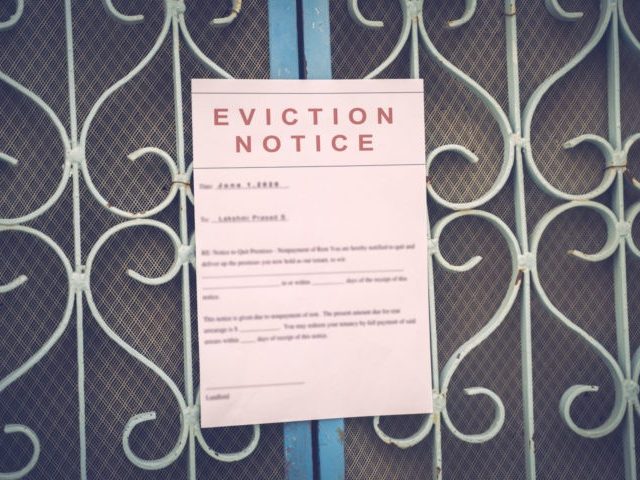An Air Force veteran is now living out of her car after the eviction moratorium prevented her from pushing out tenants who eschewed rent payments for over a year.
“Brandie LaCasse has been waiting on rent for nearly a year. She owns three properties in upstate New York, but the single mother and Air Force veteran is functionally homeless after falling on hard times herself,” reported CBS News.
Owed more than $23,000 in unpaid rent due to federal and state-imposed eviction moratoriums, LaCasse and her daughter have been pushed into living out of her car and staying with friends.
“I’ve cried many nights, like thinking, ‘Where’s my money?'” she said.
“I don’t understand how they can give my private property to somebody to live for free. I bought that property. I fixed it up with my blood, sweat and tears,” she added.
LaCasse’s tenant, Carla McArthur, told CBS News that while she has sympathy for her landlord’s situation, the coronavirus has affected her family to such a degree that they cannot pay rent.
“I feel bad that I have not been able to pay her,” McArthur said. “We’ve gone from two incomes. I had COVID-19 twice. My kids all have had it once. My husband’s had it once. We’ve been affected by the virus.”
“I’m not sure what she may do when the moratorium’s lifted,” McArthur said. “That’s what I’m afraid of, being homeless.”
According to the Daily Mail, LaCasse and her tenants qualify for federal rental assistance, but the U.S. Treasury has only distributed 10% of the allotted funds. Of the $2.6 billion in rental assistance given to the state of New York, only 8% has been distributed.
U.S. Secretary of the Treasury Janet L. Yellen sent a landlord to state and local government leaders addressing the eviction moratorium. Attorney General Merrick Garland and Housing Secretary Marcia L. Fudge also signed onto the letter.
“We are writing to request your urgent help preventing unnecessary evictions during the pandemic,” Yellen wrote.
“Our bottom line is this: No one should be evicted before they have the chance to apply for rental assistance, and no eviction should move forward until that application has been processed.”
A recent report from the Joint Center for Housing Studies at Harvard University said that landlords with less than 6 property units have been most affected by the coronavirus pandemic and eviction moratoriums.
“Ten percent of all landlords collected less than half of their yearly rent in 2020, with smaller landlords (1-5 units) most likely to have tenants deeply behind on rental payments,” the study determined.
On Thursday, the Supreme Court overturned the Biden administration’s extension on the eviction moratorium. While the decision will certainly help struggling landlords, their nightmare is far from over. Speaking with CNN, John Pollock, coordinator for the National Coalition for a Civil Right to Counsel, the courts will now be heavily inundated with eviction filings; the smoothness of this next phase will depend on their efficiency.
“There will be a ton of eviction filings,” said Pollock. “How quickly the courts might actually evict everyone, is hard to say. Courts have shown they can be ruthlessly efficient, they can dispose of hundreds of cases in a morning.”
“If they are paying attention at all they know most of that [rent relief] hasn’t gotten to anyone yet,” he added. “Many judges will push back and give tenants a chance. Take a moment to at least ask them, ‘Have you applied?’ And judges may be telling landlords, ‘Before you file to evict, you need to apply for rent relief first.'”

COMMENTS
Please let us know if you're having issues with commenting.